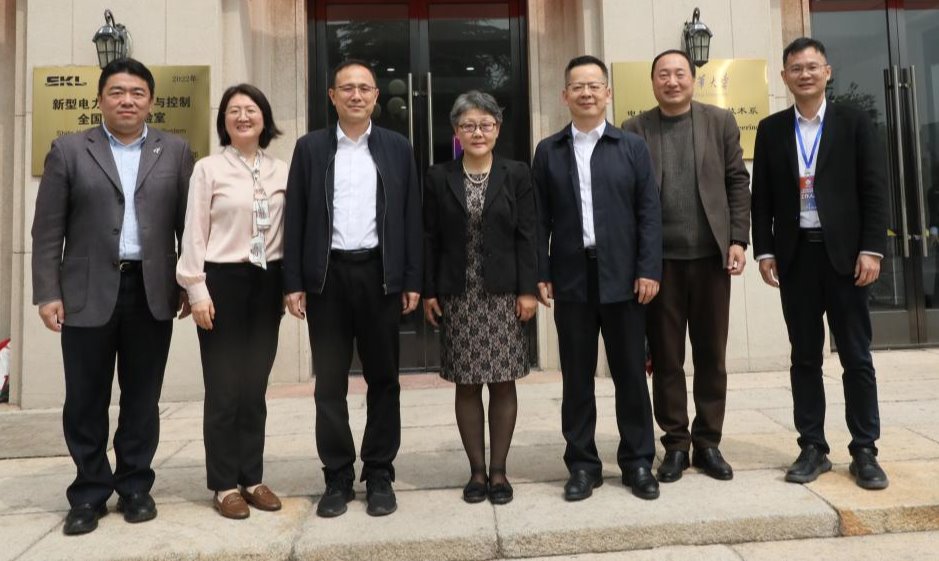On the morning of April 20, a delegation of over 20 people from Guangzhou Development Zone and Huangpu District, including Zhao Hu, Member of the Party Working Committee of Guangzhou Development Zone and Standing Committee Member of Huangpu District Party Committee and Minister of the Organization Department, Ma Lin, Deputy Minister of the District Organization Department and Deputy Director of the District Talent Work Bureau, and Ji Lingling, Party Secretary and Director of the District Human Resources and Social Security Bureau, visited the Department of Electrical Engineering and Applied Electronics (EEA) at Tsinghua University. The visit focused on in-depth discussions around university-local cooperation and promoting talent cultivation. Participating from the department were Party Secretary Zheng Zedong and Xie Jin, Director of Tsinghua University Student Career Development Center.

Zheng Zedong warmly welcomed the delegation and gave a detailed introduction to the history of the Department of Electrical Engineering as well as the scale and specific work of its “one department, two institutes, one center, and one alliance.” He highlighted the country’s strong push for new energy development and the accelerated construction of new power systems. EEA is currently advancing comprehensive high-quality development, with ongoing efforts in interdisciplinary integration and innovation in talent training systems. Mr. Zheng noted that Huangpu District has a long history and a clear regional advantage, with many tech enterprises in the district highly aligned with the department’s specialties, providing great potential for deepened future cooperation.
Zhao Hu expressed gratitude for the department’s support and emphasized the high importance Guangzhou Development Zone and Huangpu District place on the collaborative innovation between industry, academia, and research. He stated that government-school-enterprise cooperation is a key focus, with ongoing and deepening collaboration with EEA across internships, entrepreneurship, employment, and talent cultivation. The goal is to help Tsinghua graduates settle and realize their dreams in Huangpu. Zhao proposed jointly establishing a “Government-University-Enterprise Cooperation Demonstration Site,” setting up a “University Practical Teaching Base,” and building an internship and training service platform. The government and university will also jointly create a talent resource sharing platform and establish a long-term cooperative relationship through visits, research, and seminars to enhance mutual trust and resource sharing. Efforts will vigorously promote the upgrading of tripartite talent and intelligence projects and achieve shared data on talents and scientific projects.
Xie Jin, Director of the Student Career Development Center at Tsinghua University, said Huangpu’s “job placement” initiative is very sincere: “The Department of Electrical Engineering and Huangpu have many research collaborations. From a regional optimization perspective, we also encourage students to engage with Huangpu.”

















 News & Events
News & Events